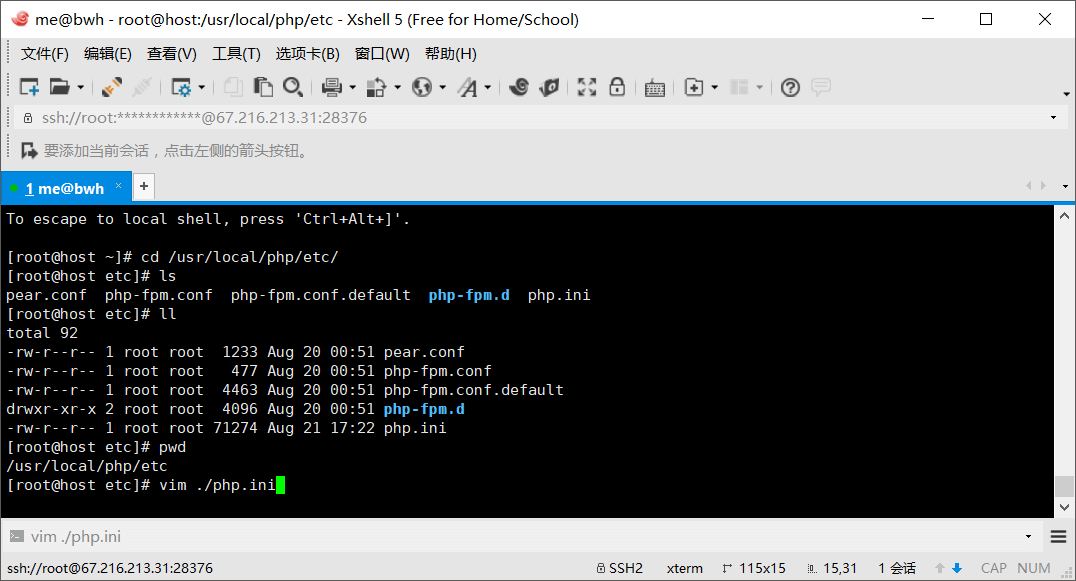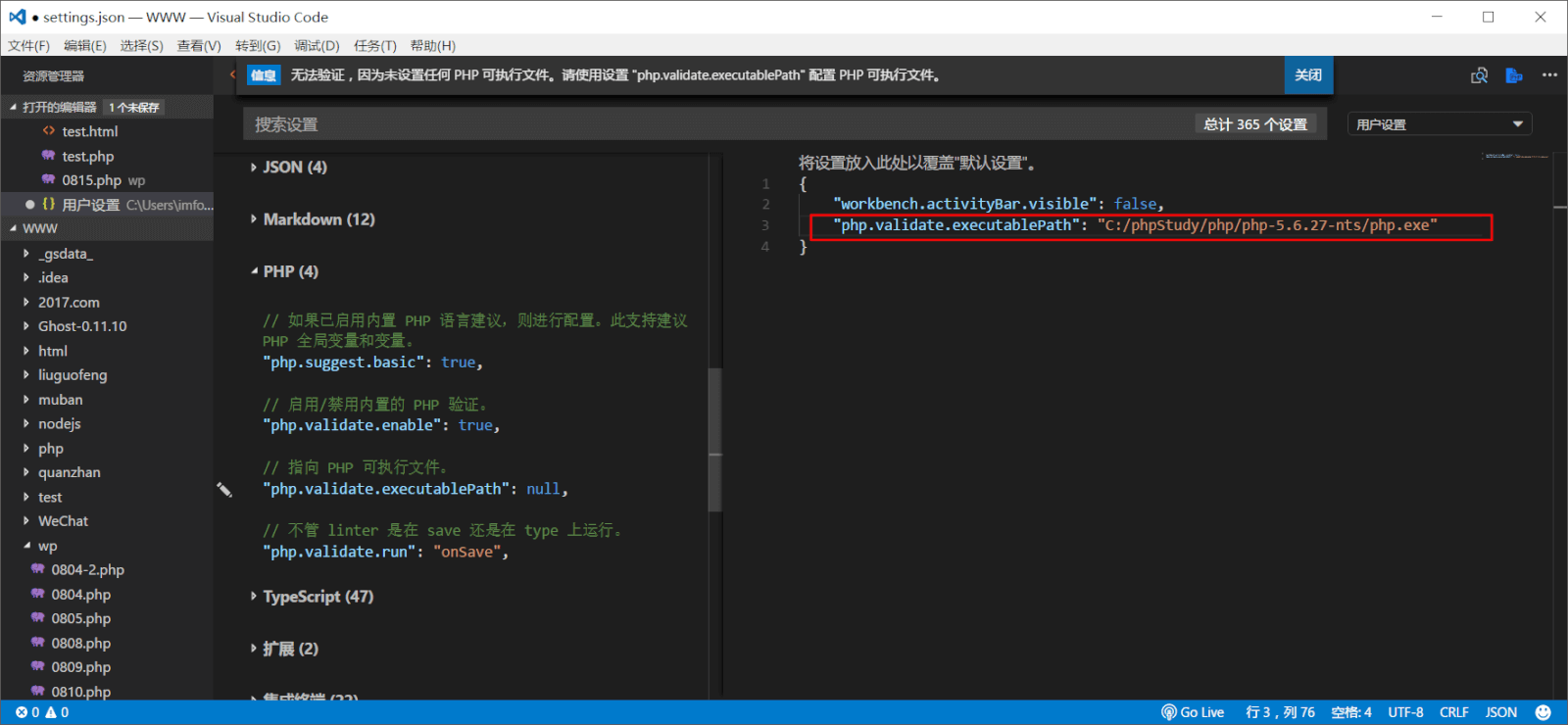找到配置文件php.ini,修改为下面内容,保存并重启服务
session.save_handler = redis session.save_path = "tcp://127.0.0.1:6379"
或
直接在代码中加入以下内容:
ini_set("session.save_handler", "redis");
ini_set("session.save_path", "tcp://127.0.0.1:6379");
测试:
<?php
//ini_set("session.save_handler", "redis");
//ini_set("session.save_path", "tcp://127.0.0.1:6379");
session_start();
//存入session
$_SESSION['class'] = array('name' => 'toefl', 'num' => 8);
//连接redis
$redis = new redis();
$redis->connect('127.0.0.1', 6379);
//检查session_id
echo 'session_id:' . session_id() . '<br/>';
//redis存入的session(redis用session_id作为key,以string的形式存储)
echo 'redis_session:' . $redis->get('PHPREDIS_SESSION:' . session_id()) . '<br/>';
//php获取session值
echo 'php_session:' . json_encode($_SESSION['class']);









